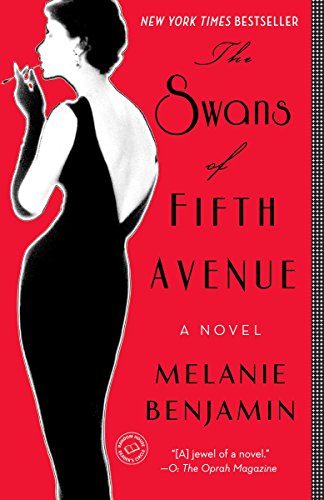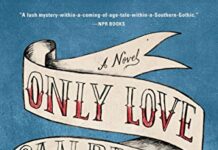
Ebook Info
- Published: 2016
- Number of pages: 400 pages
- Format: Epub
- File Size: 0.87 MB
- Authors: Melanie Benjamin
Description
NEW YORK TIMES BESTSELLER • The author of The Aviator’s Wife returns with a triumphant new novel about New York’s “Swans” of the 1950s—and the scandalous, headline-making, and enthralling friendship between literary legend Truman Capote and peerless socialite Babe Paley.People’s Book of the Week • USA Today’s #1 “New and Noteworthy” Book • Entertainment Weekly’s Must List • LibraryReads Top Ten Pick Of all the glamorous stars of New York high society, none blazes brighter than Babe Paley. Her flawless face regularly graces the pages of Vogue, and she is celebrated and adored for her ineffable style and exquisite taste, especially among her friends—the alluring socialite Swans Slim Keith, C. Z. Guest, Gloria Guinness, and Pamela Churchill. By all appearances, Babe has it all: money, beauty, glamour, jewels, influential friends, a prestigious husband, and gorgeous homes. But beneath this elegantly composed exterior dwells a passionate woman—a woman desperately longing for true love and connection. Enter Truman Capote. This diminutive golden-haired genius with a larger-than-life personality explodes onto the scene, setting Babe and her circle of Swans aflutter. Through Babe, Truman gains an unlikely entrée into the enviable lives of Manhattan’s elite, along with unparalleled access to the scandal and gossip of Babe’s powerful circle. Sure of the loyalty of the man she calls “True Heart,” Babe never imagines the destruction Truman will leave in his wake. But once a storyteller, always a storyteller—even when the stories aren’t his to tell. Truman’s fame is at its peak when such notable celebrities as Frank and Mia Sinatra, Lauren Bacall, and Rose Kennedy converge on his glittering Black and White Ball. But all too soon, he’ll ignite a literary scandal whose repercussions echo through the years. The Swans of Fifth Avenue will seduce and startle readers as it opens the door onto one of America’s most sumptuous eras.Praise for The Swans of Fifth Avenue“Exceptional storytelling . . . teeming with scandal, gossip and excitement.”—Harper’s Bazaar “This moving fictionalization brings the whole cast of characters back to vivid life. Gossipy and fun, it’s also a nuanced look at the beauty and cruelty of a rarefied, bygone world.”—People“The era and the sordid details come back to life in this jewel of a novel.”—O: The Oprah Magazine
User’s Reviews
Editorial Reviews: Review “Exceptional storytelling . . . teeming with scandal, gossip and excitement.”—Harper’s Bazaar“This moving fictionalization brings the whole cast of characters back to vivid life. Gossipy and fun, it’s also a nuanced look at the beauty and cruelty of a rarefied, bygone world.”—People“The era and the sordid details come back to life in this jewel of a novel.”—O: The Oprah Magazine “Shamelessly gossipy . . . a catty, juicy read that’s like a three-martini lunch.”—USA Today “[Captures] the mesmerizing sparkle and scandal of New York high society in the 1950s.”—Chicago Tribune “Tantalizing . . . Readers will fall into a world of glitz, glamour and the exciting life of the rich and famous. The details and conversations are so rich, you may forget you’re reading a novel.”—Associated Press “Highly entertaining.”—The Washington Post “Take Gossip Girl and move it to the 50s.”—theSkimm “[Melanie] Benjamin has given us a compelling look at an American icon, a talented yet vulnerable man, and the complex woman he loved in his own distinctive way.”—The Philadelphia Inquirer“The strange and fascinating relationship between Truman Capote and his ‘swans’ is wonderfully reimagined in this engrossing novel. It’s a credit to Benjamin that we end up caring so much for these women of power, grace, and beauty—and for Capote, too.”—Sara Gruen, New York Times bestselling author of Water for Elephants “A delicious tale . . . Melanie Benjamin has turned Truman Capote’s greatest scandal into your next must-read book-club selection.”—Jamie Ford, New York Times bestselling author of Hotel on the Corner of Bitter and Sweet “Reading The Swans of Fifth Avenue is like being ushered into a party where you’re offered champagne and fed the sumptuous secrets of New York’s elite—without having to pay the price afterward. The swans are outmatched only by the elegance of Melanie Benjamin’s prose—captivatingly earnest and sophisticated.”—Vanessa Diffenbaugh, New York Times bestselling author of The Language of Flowers “Benjamin convincingly portrays a large cast of colorful historical figures while crafting a compelling, gossipy narrative with rich emotional depth.”—Library Journal“The beautiful people of the fifties and sixties glitter in this riveting tale of betrayal and greed. . . . Irresistible, astonishing, and told with verve . . . not to be missed.”—Lynn Cullen, bestselling author of Mrs. Poe About the Author Melanie Benjamin is the New York Times bestselling author of The Children’s Blizzard, Mistress of the Ritz, The Girls in the Picture, The Swans of Fifth Avenue, The Aviator’s Wife, The Autobiography of Mrs. Tom Thumb, and Alice I Have Been. Benjamin lives in Virginia, where she is at work on her next historical novel. Excerpt. © Reprinted by permission. All rights reserved. chapter 1…..Once upon a time—It was the best of times, it was the worst of times—There once was a man from Nantucket—Truman giggled. He covered his mouth like a little boy, and tittered until his slender shoulders shook, his blue eyes so gleefully mischievous that he looked like a statue of Pan come to life.“Oh, Big Mama! I am such a naughty imp!”“True Heart, you are priceless!” Slim had laughed, too, she remembered, laughed until her ribs ached. Truman did that to her in those glorious early days; he made her laugh. That was it, really. The simple truth of the matter.When he was young, back in 1955, when they were all young—or, at least, younger—when fame was new and friendships fledgling, fueled by champagne and caviar and gifts from Tiffany’s, Truman Capote was a hell of a lot of fun to be around.“Once upon a time,” Slim had finally pronounced.“Yes. Well . . . ,” and Truman drawled it out in his theatrical way, adding several syllables. “Once upon a time, there was New York.”New York.Stuyvesants and Vanderbilts and Roosevelts and staid, respectable Washington Square. Trinity Church. Mrs. Astor’s famous ballroom, the Four Hundred, snobby Ward McAllister, that traitor Edith Wharton, Delmonico’s. Zany Zelda and Scott in the Plaza fountain, the Algonquin Round Table, Dottie Parker and her razor tongue and pen, the Follies. Cholly Knickerbocker, 21, Lucky Strike dances at the Stork, El Morocco. The incomparable Hildegarde playing the Persian Room at the Plaza, Cary Grant kneeling at her feet in awe. Fifth Avenue: Henri Bendel, Bergdorf’s, Tiffany’s.There was a subterranean New York, as well; “lower” in every meaning of the word. Ellis Island and the Bowery and the Lower East Side. The subway. Automats and Schrafft’s, hot dogs from a cart, pizza by the slice. Chickens hanging from windows in Chinatown, pickles from a barrel on Delancey. Beatniks in the Village with their torn stockings and dirty turtlenecks and disdain for everything.But that wasn’t the New York that drew the climbers, the dreamers, the hungry. No, it was lofty New York, the city of penthouses and apartments in the St. Regis or the Plaza or the Waldorf, the New York for whom “Take the ‘A’ Train” was a song, not an option. The New York of big yellow taxis in a pinch, if the limousine was otherwise occupied. The New York of glittering opening nights at the Met; endless charity balls and banquets; wide, clean sidewalks uncluttered by pushcarts and clothing racks and children playing. Views of the park, the river, the bridge, not sooty brick walls or narrow, dank alleys.The New York of the plays, the movies, the books; the New York of The New Yorker and Vanity Fair and Vogue.It was a beacon, a spire, a beacon on top of a spire. A light, always glowing from afar, visible even from the cornfields of Iowa, the foothills of the Dakotas, the deserts of California. The swamps of Louisiana. Beckoning, always beckoning. Summoning the discontented, seducing the dreamers. Those whose blood ran too hot, and too quickly, causing them to look about at their placid families, their staid neighbors, the graves of their slumbering ancestors and say—I’m different. I’m special. I’m more.They all came to New York. Nancy Gross—nicknamed “Slim” by her friend the actor William Powell—from California. Gloria Guinness—“La Guinness”—born a peasant in a rural village in Mexico. Barbara Cushing—known as “Babe” from the day she was born, the youngest of three fabulous sisters from Boston.And Truman. Truman Streckfus Persons Capote, who showed up one day on William S. and Babe Paley’s private plane, a tagalong guest of their good friends Jennifer Jones and David O. Selznick. Bill Paley, the chairman and founder of CBS, had gaped at the slender young fawn with the big blue eyes and funny voice; “I thought you meant President Truman,” he’d hissed to David. “I’ve never heard of this little—fellow. We have to spend the whole weekend with him?” Babe Paley, his wife, murmured softly, “Oh, Bill, of course you’ve heard of him,” as she went to greet their unexpected guest with her legendary warmth and graciousness.Of course, Bill Paley had heard of Truman Capote. Who hadn’t, in Manhattan in 1955?Truman, Truman, Truman—voices whispered, hissed, envied, disdained. Barely thirty, the Boy Wonder, the Wunderkind, the Tiny Terror (this last, however, mainly uttered by other writers, it must be admitted). Truman Capote, slender, wistful bangs and soulful eyes and unsettling, pouty lips, reclining lazily, staring sultrily from the jacket of his first novel, Other Voices, Other Rooms. A novel that neither Babe nor any of her friends such as Slim or Gloria had bothered to read, it must be admitted. But still, they whispered his name at cocktail parties, benefits, and luncheons.“You must meet—”“I’m simply mad about—”“Of course you know—”Truman.“I introduced you to him first,” Slim reminded Babe after that fateful weekend jaunt to the Paleys’ home in Jamaica; that startling, stunning weekend when Babe and Truman had found themselves blinking at the first dazzling sunrise of friendship, still so new that they didn’t quite understand that it was friendship, this thing that had cast a spell over the two of them to the exclusion of mere mortals. “You just don’t remember. But he was mine, my True Heart. It’s not fair that you’ve stolen him from me.” And Slim pouted and shook her blond hair, always hanging over one eye, looking more like Lauren Bacall than did Lauren Bacall, which was only appropriate, since Lauren Bacall had modeled herself after Slim. “Around the time he was working on the screenplay of Beat the Devil, Leland brought him home for dinner one night. Don’t you remember?”“No, it was I who first discovered him,” Gloria insisted with a flash of her exotic dark eyes; that flash that always threatened to expose her real origin, concealed so nearly completely beneath the Balenciaga dresses and Kenneth hairstyles—and studied British accent. “I’m surprised, Slim, that you don’t recall. It was soon after he adapted The Grass Harp for Broadway. I don’t generally go in for Broadway, naturally,” she said with an arch look at Slim, who bristled. “But I’m very glad I went to that opening night. I told you all about him then, Babe.”“My dear, no. I invited him for the weekend, in Paris, don’t you recall?” Pamela broke in, her voice so veddy, veddy British that they all, instinctively, leaned in to hear her (and they all, instinctively, recognized the ploy for what it was, and the many times their husbands had done the same thing, only to encounter Pamela’s magnificent cleavage displayed in a low-cut Dior). “Long before any of you—back when he had just published Other Voices, Other Rooms. Bennett Cerf, you know, the publisher”—and she could barely suppress a shudder; one simply did not like to admit one knew those types—“asked me if I could entertain this young novelist of his, as he was rather nervous about reviews. You were there, Babe. I’m certain of it.”“Ladies, ladies,” admonished C.Z., unflappable and untouchable as ever, never quite “in” but never quite “out” of their world—simple and uncomplicated, a Hitchcock blonde with a sunny smile (and a clenched, exceedingly proper Boston drawl). But C.Z., they all knew, was happier puttering around in her garden, spade in hand, or tending to her horses than she was lunching at Le Pavillon. “I don’t usually care about this sort of thing, but I do believe I was the one who introduced Truman to Babe. We were shopping at Bergdorf’s. Truman is marvelous at picking out just the right handbag. You were there that afternoon, Babe.”“No, I propose it was on our yacht,” Marella said in her uncertain English; her entire manner was shy and tentative around her friends, since she was much younger than they were, never entirely sure of her place, despite her fabulous wealth and exquisite beauty—and a face that Truman had pronounced “what Botticelli would have created, had Botticelli had more talent!” “Alec Korda brought him along, one summer. I believe you and Bill were there, Babe, were you not?”Babe Paley, cool in a blue linen Chanel suit that did not crease, no matter the radiator heat of a New York summer, didn’t reply; she merely looked on, amused, as she removed her gloves, folded them carefully, and slipped them inside her Hermès alligator bag. Seated in the middle of the best table at Le Pavillon, she surveyed her surroundings.This was her world, a world of quiet elegance, artifice, presentation. And luncheon was the highlight of the day, the reason for getting up in the morning and going to the hairdresser, buying the latest Givenchy or Balenciaga; the reward for managing the perfect house, the perfect children, the perfect husband. And for maintaining the perfect body. After all, one generally dined at home, or at a dinner party; why else employ a personal chef or two? But one went out for luncheon, at The Colony or Quo Vadis. But especially Le Pavillon, where the owner, Henri Soulé, displayed his society ladies like the objets of fine art that they were, seating them proudly in the front room, spreading them out in plush red-velvet banquettes, setting the table with the finest linen, Baccarat glasses, exquisite china and silver, and cut crystal bowls of fresh flowers. They drank their favorite wine, pushed the finest French cuisine around their plates (for in order to wear the kind of clothes and possess the kind of cachet to be welcome at Le Pavillon, naturally one could not actually eat), gossiped, and were seen.Photographers were always gathered on the sidewalk outside, waiting to snap the beautiful people inside, and Babe, tall, regal, a gracious smile on her face, was the most sought-after of all, to her friends’ eternal dismay and her own weary disdain—although the most observant, like Slim, might notice that Babe would pause, imperceptibly, if no photographer happened to be around, as if looking, or wishing, for one magically to appear.Why was Babe Paley such a favorite? Why was she the most fussed over, the most sought out for a quick, reverent hello by those not privileged to be seated with her? She was not the most beautiful; that honor must go to Gloria Guinness, with her exquisite neck, lustrous black hair, and flashing eyes. She was not the most amusing; that was Slim Hayward, with her quips and her quick wit, honed at the feet of men like Ernest Hemingway and Howard Hawks and Gary Cooper. She was not the most noble; no, that would be a tie between the Honorable Pamela Digby Churchill, daughter of a baron, ex-daughter-in-law of a prime minister, and Marella Agnelli, a bona fide Italian princess, married to Gianni Agnelli, the heir to the Fiat kingdom.It was her style, that indefinable asset. It was said that the others had style but Babe was style. No one noticed Babe’s clothes, for instance; not at first, even though she was always clad in the chicest, most exquisite designs. They noticed her, her tall, slender frame, her grave dark eyes, the way she had of holding her handbag in the crook of her arm, the simple grace with which she pushed her sunglasses on top of her hair or unbuttoned a coat with just one hand, allowing it to fall elegantly from her shoulders into the always-waiting arms of a maître d’.What they did not notice was the loneliness that trailed after her, along with the faint, grassy scent of her favorite fragrance, Balmain’s Vent Vert. The loneliness that, despite fabulous wealth, numerous houses, children, the most vibrant and powerful husband of all her friends, was her constant companion—or, at least, had been. Until now.“It doesn’t really matter,” Babe finally pronounced, settling it once and for all. “I’m simply so very glad to know him. To Truman!” And she raised a flute of Cristal.“To Truman!” her five friends all echoed, and they toasted to their latest find, excited and hungrily anticipating fresh amusements galore, nothing more.“To Truman,” Babe whispered to herself, and smiled a private little smile that none of her friends had ever seen before. But the Duchess of Windsor had just entered the restaurant, her harsh little face turned first to the left, then to the right, as if she really were royalty, igniting a small wildfire of catty conversation—“Isn’t the duke the most boring man you’ve ever met? But those jewels! The one thing he’s ever done right!”—and none of Babe’s friends was even looking at her.Except for Slim, who narrowed her eyes and bit her lip. And wondered. chapter 2…..There was another young woman who dreamed of New York; another young woman who knew that if she could only find her way there, she could live happily ever after—with or without her young son. Her name was Lillie Mae Faulk, and she was from Monroeville, Alabama. She came to New York, too.Once upon a time.“My mother’s name was Nina,” Truman told Gloria, told C.Z., told Slim. His eyes gleamed softly, reverently. “Nina was beautiful—a real lady. She was too much for Monroeville, Alabama! She always told me, ‘Truman, my little man, I’m going to take you to New York one day.’ And she did, when I was eleven. That’s when my life really began—because it’s New York! Not sleepy little Monroeville, where nothing ever happened. Although I did get bit by a cottonmouth once, and nearly died. Nearly—oh, my goodness, I was one foot over the line! But they saved me. Nothing can kill me, not even a snake!”“Oh!” Slim gasped. Then she grinned. “Let me see the scar!”“Big Mama!” Truman wagged a finger at her but obliged, rolling up his shirt to reveal a thin, supple arm, paler than the moon, covered with a fine down of silken blond hair, as white as the hair on his head, the hair brushing his eyes, always falling, falling over his face like a curtain or a veil. “See?”Slim did see: two faint punctures on his forearm, barely visible.“These are my scars, my only scars,” Truman told her, triumphantly. “I don’t have any others!”“My mother’s name was really Lillie Mae,” Truman revealed to Babe. It was early in their friendship, those days when they had to catch each other up on everything that had happened to them, so that they could mark their lives—Before. And After.“Lillie Mae Faulk. And she was a selfish bitch,” Truman said, his voice flat for once. He wasn’t trying to captivate or ensnare; he knew he had Babe, knew it in his heart. Knew it as a dream come true, for that was what it was. Read more
Reviews from Amazon users which were colected at the time this book was published on the website:
⭐Three and a half stars.Well-researched and pleasantly gossipy, “The Swans of Fifth Avenue” explores the symbiotic, ultimately destructive emotional/psychological romance between Truman Capote and his bevy of socialites, especially the iconic Babe Paley. One of the enjoyable aspects of the book is that thanks to the internet, you can look up people’s photos while you’re reading about them, which feels simultaneously fun and a little stalker-ish.There are parts of this novel that work very well, particularly the author’s sensitivity to Babe Paley’s inner world, and what might have drawn her to Capote. It is less successful in its speculative exploration of why Capote destroyed himself and his world by betraying the confidences of his glittering coterie in the thinly veiled “Answered Prayers.”To enjoy this book, you’ll have to be willing to set aside any inherent annoyance you may have at being asked to sympathize with the woes of beautiful, insanely wealthy and privileged socialites who face the tragedy of passing time. Oh, these exquisite trophy wives! As they age, it becomes harder and harder to *be perfect*! They become–oh God, no!–*aesthetically irrelevant and invisible.* It was all I could do not to scream aloud, “BRING ME THE TINIEST VIOLIN” and/or “TRY SPENDING YOUR WHOLE LIFE AS IRRELEVANT AND INVISIBLE AND THEN GET BACK TO ME.” But of course, this is merely sour grapes on my part. Surely I have it in me to summon some sympathy for a woman whose only real asset is her looks, and who sees that this asset has no compounding interest…when it’s gone, it’s gone.But still, this is not a novel about people who are attaining any philosophical insight or making the world the better place. It’s about vain, wealthy people who exploit their privilege–and about a man who is very vain though not wealthy or privileged but who desperately wants to belong to their world, and the ways in which he panders to that world in order to be part of it. There’s certainly a lesson to be learned here–“Don’t be a jerk”–but honestly, if that’s a lesson you need to learn, chances are you aren’t open to it from any venue, and certainly not from mainstream fiction.So–we’re back to the gossipy, social-whirl quality of the novel being the reason to read it, and most of the time, that’s reason enough. It’s entertaining while also being maddening, and although the people in it are dead and gone, they died and went recently enough that the book still feels as if we’re being given a glimpse of something scandalous and forbidden.The novel would have benefited greatly from a more focused edit–every woman’s feet are described as “long and narrow”; Capote is described as having a “cleft jaw” (rather than a cleft chin); there are sloppy word and phrase repetitions. In the opening scene, the “swans” are dining at their favorite restaurant, and we are told that they never eat, so that they will remain thin and worthy of being seen; however, later in the novel one of these same characters is described as being not-thin, and at the end of the book she’s enjoying the heavy French cuisine in a scene set shortly after the opening, so–seriously, a little continuity editing goes a long way, folks. These are only a few examples of the many times I sighed in annoyance, but my tolerance for this kind of thing is notoriously limited, and your mileage may vary.Overall: A frothy romp whose foam sometimes coalesces sufficiently to support something of substance, but you’ll probably enjoy this more if you are, like most of the characters, in a pleasantly altered state of mind. Recommended for post-cocktail-hour relaxation.
⭐In the 1950s, rising literary star Truman Capote was able to ingratiate himself into a circle of high society women whom he called his ‘swans.’ The friendships, if that’s what they were, lasted some twenty-odd years. But Capote always said he wrote ‘what he knew,’ and when he penned a story (the story can be read on line; it’s dreadful: La Cote Basque 1965) with his swans thinly disguised, and divulged their tawdry private lives, these friendships shattered. It’s a well known tale to anyone familiar with Capote’s life, and it can be told in far fewer pages, and with far better writing than Benjamin’s—and it has—in several magazine articles. Basically, there is little to the tale and so the author, forced to reach a certain amount of words to make this into a novel, constantly repeats things and over-describes the wealth of the women. In fact, you might say she has used her computer as a shovel and rammed that wealth and privilege down the reader’s throat. How many times do we have to read about ‘jeweled fingers’ or ‘well manicured hands’? I lost track of the number of times having their hair done at Kenneth’s was mentioned. Were the repeats of using cucumber slices on their eyes a beauty tip? Conversely, sub-plots that could have been enhanced are left hanging. We’re told Bill Paley, President of CBS and a known womanizer, asked Capote to set him up with Carol Matthau. Capote refuses, yet when he next sees Matthau he asks her to meet Paley. She declines. But now, we’re never told if Capote told Paley this or what happened; the incident is left unfinished. Then there are the useless additions of information. Babe Paley exits her limo at Bergdorf’s and we’re told she never gave a thought to where it would be parked. Why would she? any more than the chauffeur would give a thought to where madam would find a powder room. Bill Paley drops his shirt on the floor, when he changes, without a thought as to who will pick it up. (Yet later, it is he who cleans up a broken glass Babe has dropped. Where were the invisible maids then?) Where Benjamin has succeeded is in drawing the characters of both Capote and his main friend, Babe Paley. If the book was a short character study of those two, she would have succeeded. But the Paley/Capote tale doesn’t fill a book and this is more a story about women who were born and bred to do nothing more than look glamorous hanging on the arms of their wealthy husbands—all their husbands as they exchanged men rather frequently. The trouble with writing a book about people who led empty, useless lives is that there’s nothing to say, nothing to write about, and the author bores us with the proof. How this book got past editors, got these good reviews, is totally beyond me. But then, Benjamin must be ‘gliding’ across the ballroom all the way to the bank.
⭐Being a huge fan of the writings of Truman Capote and interested in that period of time in New York, I was looking forward to reading this book to flesh out what I had already learned from reading Truman Capote’s works. I was disappointed on two fronts, the first being the quality of the writing which was pretty average. If you’re a reader of Truman Capote this isn’t anywhere near the standard of writing that will keep you interested for very long. Secondly, I learnt nothing new. It had the overall effect of someone who has done their research and then tried to concoct an interesting (and at one point pretty ludicrous) story around it. The well known quotes and tales were obvious from a mile away and I really learnt nothing new at all. I ploughed on just in case there might be some hidden gem but, alas, there wasn’t. The constant repetitiveness of the names of “The Swans” and the one-dimensional approach to these characters (apart from Babe Paley who she fleshed out a bit more) was really quite laughable. My advice would be to read Truman Capote and do a bit of research for yourself. Much more rewarding.
⭐I remember my Mother reading the latest magazines, heck I remember my Mother emulating the style of the swans. Such overwhelming sadness in this book, for the women of this era, including my Mother. They truly believed they had to be the best that they could be for men. Their men they attempted to educate and dress, their homes they wanted to be stylish. They were lonely and flirted/ had affairs, drank too much, before their flame spluttered out. They were born too soon, when the Twiggys of this world arrived they were lost. Truman was cruel but accurate, even he was left behind in this modern world. I nearly gave up reading a few times because of its cloud of misery, but I am glad I did not. It reminded me of another book that affected me deeply, The Womens Room. We have moved on, sometimes for the good, sometimes I feel we lost out along the way once again. Now we get to work, raise children, clean, do the garden, have the mens roles really changed. Hmmmm….
⭐Wonderful book! One of the best reads I’ve enjoyed in some years. Perhaps this is because I remember the society ‘ladies who lunch’ from the 60s and 70s, as well as the central figure Truman Capote. But this is so engagingly written I think it would be enjoyed by anyone who enjoys studying people. The lives of the rich and successful have always been fascinating, and the author manages to convey both the humanity and the pathos of the central characters. What sad and unfulfilled, and lonely, lives they often led, however gilded.
⭐I’m not sure I’m the audience for this. But it’s puzzling that in a world where new writers are told to start fast that this slow mover gets published at all.Not that it’s bad. It’s nicely written with interesting people. It’s just contrary to all the advice writers get
⭐Interesting description of an era and of the lives of its rich women……what a complicated person was Truman Capote ! Egocentric, self-justifying- yet deep down …..suffering. M
Keywords
Free Download The Swans of Fifth Avenue: A Novel in Epub format
The Swans of Fifth Avenue: A Novel Epub Free Download
Download The Swans of Fifth Avenue: A Novel 2016 Epub Free
The Swans of Fifth Avenue: A Novel 2016 Epub Free Download
Download The Swans of Fifth Avenue: A Novel Epub
Free Download Ebook The Swans of Fifth Avenue: A Novel





